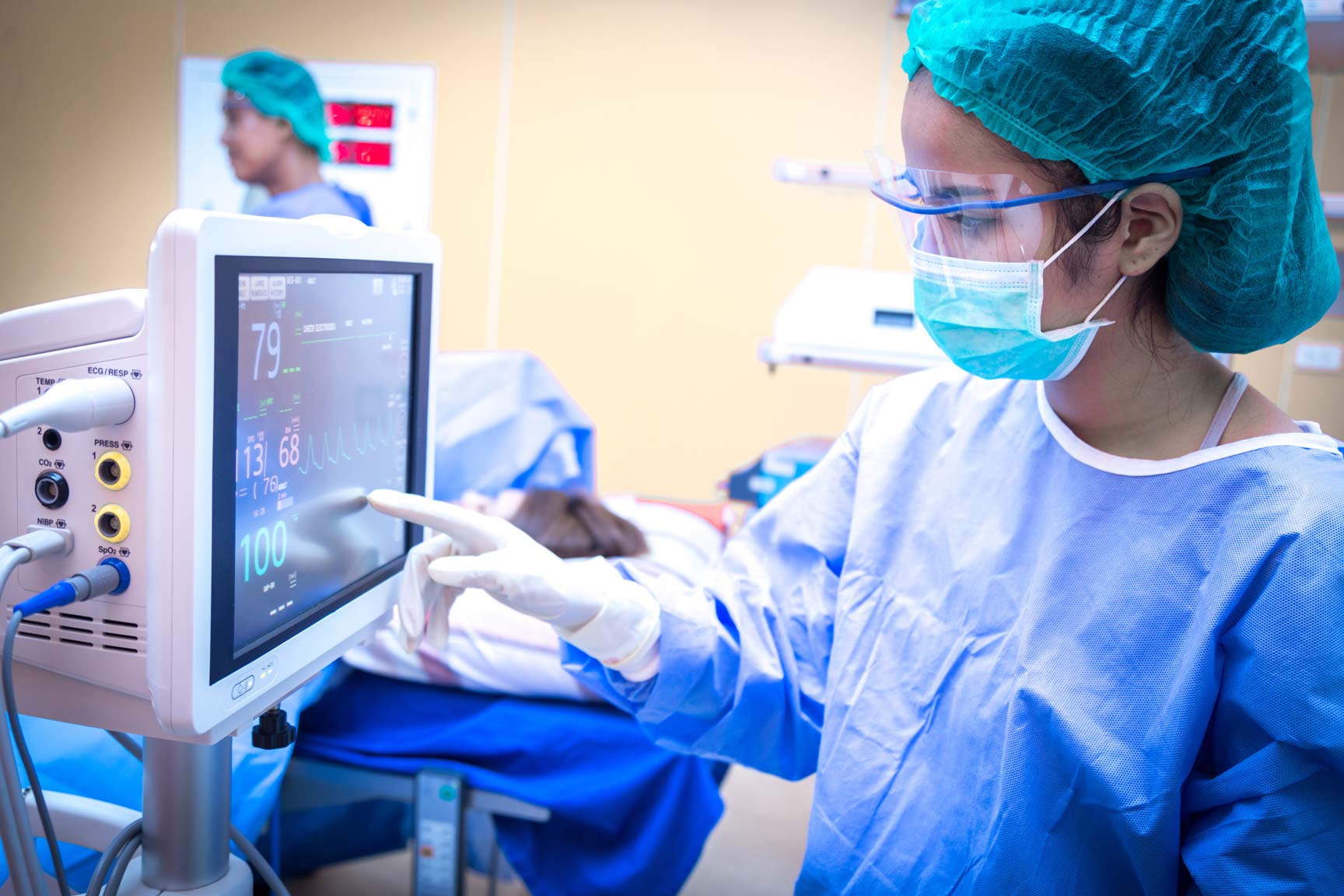
© sdecoret / Adobe Stock
Law in Medicine
Legal scholars from the university are carrying out research in a complex field of law
There have been great steps forward in the development of new medical therapies and treatment approaches. This has led to the circumstance that new questions and debates on the suitable implementation of modern medicine and the intense usage of health data arise daily. The work of legal scholars at the University of Bremen’s Institute for Information, Health and Medical Law (IGMR) focuses on such questions.
How sensible is the implementation of advanced technology irrespective of all risks and costs? For what can a doctor be held liable and not liable? What rights do patients have? How carefully does their data need to be handled and how can health data be recorded and tapped systematically? An ever-growing number of topics in the fields of health and medicine are the subject of controversial discussions.
The term “responsible patient” is often used today to describe the party whose rights have been repeatedly strengthened in recent times.
“The times of humble patients simply accepting the doctor’s diagnosis and advice and then following the instructions given to him or her are long gone,” knows Professor Benedikt Buchner, who leads the IGMR together with his colleagues Friedhelm Hase and Jörn Reinhardt, as well as the scientific director Dennis-Kenji Kipker. The term “responsible patient” is often used today to describe the party whose rights have been repeatedly strengthened in recent times. “Conversely, doctors are increasingly held responsible for treatment errors - and are trying to protect themselves with even more documentation and patient information, but also by means of ‘defensive medicine’,” states Buchner. The increasing levels of digital networks in the health sector open up new possibilities but also require special protective measures thanks to the usage and linking of sensitive personal data.
First Institute of its Kind
“The legal issues surrounding medicine and health have multiplied in a short space of time,” says Professor Benedikt Buchner. Together with scientific assistance and students, the IGMR investigates several legal problems that repeatedly occur in the truly multifaceted health system. “As there is a great consultation demand in health and medical law, institutes much like the IGMR have formed at many German universities,” explains Buchner.

© A Stockphoto / Adobe Stock
The Bremen institute was founded before the turn of the millennium and was the first of its kind at the time. One of the tasks that the founding members Professor Robert Francke and Professor Dietmar Hart took on was the creation of the “Charter of Patient Rights” (“Charta der Patientenrechte”) for the Conference of State Health Ministers (GMK). The charter stated the obligations in the relationship between doctor and patient and was to promote trust between both sides.
Expertise at the Interface between Medical Law and Information Law
One of the institute’s tasks is to merge different fields of law with various other academic areas. “For example, this happens via cooperations between medicine and medical ethics, the health and information sciences, together with health economics,” states Benedikt Buchner. IGMR supports several research cooperations in its function as project partner and with its expertise at the interface between medical law and information law.
One of the current projects is the creation of a national research data infrastructure (NFDI4Health). The project, which is funded by the government and states and is coordinated by the German Research Foundation (DFG), receives advice from IGMR and is accompanied by the institute on all issues related to data protection and data security. The cooperation with the Leibniz Science Campus Digital Public Health - a research alliance that looks at the challenges of digital networking in the health sector - is also to be noted.

© DC Studio / Adobe Stock
Transfer into Practical Fields: A Central Focus
The transfer of scientific findings into practical fields is also one of the core focus points of the legal institute at the university. This includes regular classes and conferences on current topics in health and information law. “And last but not least, early-career researchers are also trained at the institute,” adds Buchner. The legal scholars of tomorrow are involved in several third-party-funded projects surrounding central research topics in the frame of doctoral training.